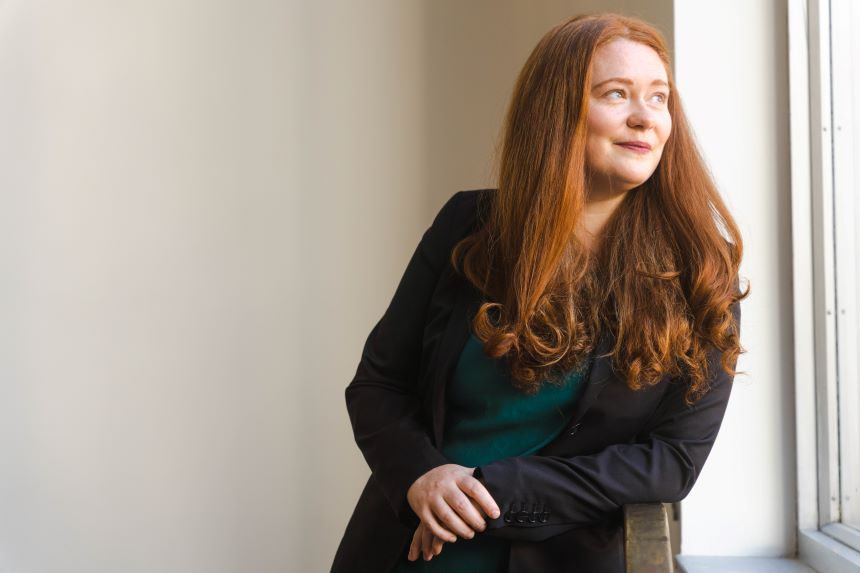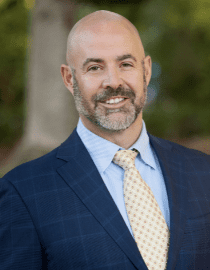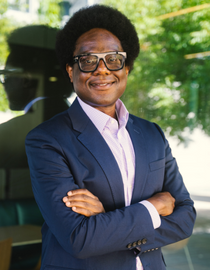
By Gwyneth K. Shaw
For more than 25 years, the Berkeley Center for Law & Technology has been a hub for the legal and regulatory intersection of the cutting edge — a lodestar for academics, practitioners, and students at Berkeley Law and around the world.
Now, with the COVID-19 pandemic further driving home the critical importance of breakthrough medical technologies, and with the biotech industry booming in the Bay Area, BCLT is adding a life sciences initiative to its already robust agenda.
The Life Sciences Project is a new place to explore intellectual property, innovation, and regulatory issues across a broad range of products and technologies, BCLT Executive Director Wayne Stacy says, from drug discovery to artificial intelligence (AI) and healthcare data.

“Life science is not just biotech. It’s health tech, medical devices, and also the social issues around health policy,” Stacy says. “This life sciences group has become so important and so big, and I think that it was appropriate for the law school and for BCLT to start recognizing how critical this was to the Bay Area.”
The new addition complements the center’s existing pillars: Patents, copyrights, and trade regulation; privacy and cyber; technology and societal impact; and information technology, Stacy explains. It also bolsters Berkeley Law’s renowned reputation in intellectual property law, which has earned the school the No. 1 ranking among U.S. News & World Report voters for 18 years running.
With that powerhouse expertise, he says, BCLT is perfectly positioned as computer science and biological science continue to become intertwined. AI is a perfect example: Life sciences companies are increasingly using it to help product development.
“We’re really building on that high-tech foundation we have to capture where the tech market is going, and to address the social issues that are inevitably popping up from this rapid technology growth,” Stacy says.
The project was initially the brainchild of Vern Norviel, a partner at Wilson Sonsini who’s been working with life science companies for three decades. The idea came to him one day as he walked to the BART station after teaching at Berkeley Law, passing the special parking spaces UC Berkeley reserves for its Nobel laureates.
“It struck me that the law school was only a few feet away, and there should be a much better bridge to the rest of the university in the life sciences,” Norviel says.
He and his firm both donated to the new initiative, along with other project founders: Genentech, Gilead, and Weil Gotshal & Manges LLP. BCLT and its faculty directors, including Professors Peter Menell and Robert Merges, also helped bring the project to life.
The project takes BCLT and Berkeley Law to a whole new level, Norviel says.
“The law school has the leading life science research in the world — literally — outside the front door,” he says. “Connecting that with the leading law school just cannot be matched.”
The view from two coasts
Led by Allison Schmitt ’15, a seasoned life sciences litigator who also has a Ph.D. in chemistry, the project has two main priorities, Stacy says. The first is to promote research, with a focus on where scholars can help move the law forward. The second is to build a sense of community among lawyers practicing in the life sciences sector, to give them a place to get together and share ideas.
“That community is important because often they’re going to see problems and issues long before they even surface in the academic world,” Stacy says. “That’s one of the great things Allison will be introducing — to help them really work as a single unit from out here, and get a West Coast approach to dealing with problems.”
He calls Schmitt a slam-dunk hire because she’s not just a proven litigator in the sector, but has a top-notch pedigree in both law and science, including her doctorate from Duke University and stints as a federal court clerk and a lawyer in two top Washington, D.C., firms.
“She’s seen the career paths that are available, and she also brings an East Coast perspective,” Stacy says. “That’s a huge, huge benefit, because it lets us see why we’re different out here, with our community of emerging companies and with our startups, from the kind of old mainstream pharmaceutical companies that are on the East Coast.
“The ability to spot the differences — and then craft solutions — made her really a unique individual.”
Building community
Schmitt says it’s a pivotal time for both life sciences research and developments in the legal infrastructure that supports it. She pointed to the mRNA vaccines developed to combat the COVID pandemic as one example.
“We have observed the importance of the ongoing research over the past 30 years into various technologies that resulted in the COVID-19 vaccines, and we are now engaging in the debates surrounding the proper legal frameworks for protecting those inventions,” Schmitt says. “Further, startups in the life science space, including in the Bay Area, are gaining real traction towards bringing their transformative technologies to fruition, and digital technology is changing the ways in which life science research is conducted and brought to market.”
It’s also a key moment to build the community in what she calls the life science legal ecosystem, including practitioners — at firms and in-house at companies — as well as scientists and those from other disciplines, particularly ethics. She is working to create chances for them to come together, both virtually and in person.
Schmitt hopes to bring everything she’s learned in her career so far to the new initiative. Her experiences before law school, she says, fueled her interest in learning about new technologies aimed at improving human health.
“I’m still a science nerd at heart! I have a first-hand appreciation for how challenging research in the life sciences can be, as well as the significant amount of effort that goes into each successful discovery in this space,” Schmitt says. “Based on this experience, I have a strong interest in studying how the legal system drives innovation in the life sciences.
“I’m excited to work with the BCLT faculty and the world-class science programs on Berkeley’s campus to build out the bioscience, bioethics, and health care aspects of BCLT’s curriculum, research, and public policy efforts.”
Norviel sees overlapping benefits for the Berkeley Law community and the life science sector. Students can tap into more connections and opportunities. The school and the university get another research jewel.
“And for industry, there will be access to the best law students — fully loaded with life science knowledge,” he says.
An expanded reach
The Life Sciences Project is also part of a larger effort to further broaden BCLT’s research agenda to include more consideration of ethical and societal concerns around technology. Several BCLT faculty co-directors already study some of these concerns, including Professors Andrea Roth and Rebecca Wexler.

Professor Osagie K. Obasogie, who joined the law school faculty earlier this year, has just come on board as BCLT’s 18th faculty co-director. Obasogie, who has a joint appointment at the UC Berkeley-UCSF Joint Medical Program and the UC Berkeley School of Public Health, is a bioethicist who studies reproductive and genetic technologies, DNA technologies in the criminal justice system, and the centrality of race and racial thinking to law, medicine, and science. He was recently elected to the National Academy of Medicine.
“The Life Sciences Project presents a unique opportunity to place new innovations and scientific developments in social, political, and historical contexts so that we can have meaningful conversations about their potential impact on individuals and communities.” Obasogie says. “This will allow us to help maximize benefits and minimize possible ethical or technical oversights that might lead to harm.”
Stacy says the project, and the center, want to look at technology through the lens of social justice, environmental impact, and other considerations that can get lost in the development process.
“It’s not just about getting technology to market. It’s not whether can we build it. A huge piece of this is going to be should we build it?” he says. “If we can get that kind of ethical training into lawyers, then they can introduce it into product development teams and help guide the path forward.”
In addition to her excitement about the new project, Schmitt says she’s thrilled to be back on campus again, and eager to be part of BCLT, which was integral to her experiences as a student.
“I have a strong appreciation for the significant role that BCLT can play in students’ lives and careers, because BCLT played that role in helping me begin my career as a life science patent practitioner,” she says. “I am so appreciative of the encouraging energy and community at Berkeley Law — this is a space where creativity and diversity are encouraged and supported, and where people are incredibly passionate about their work and study.”